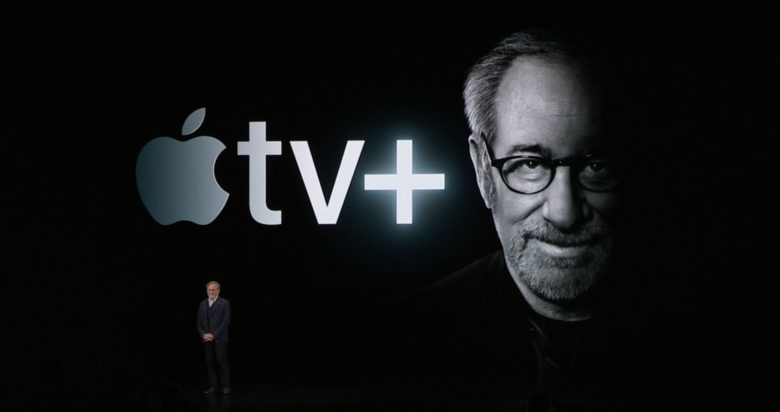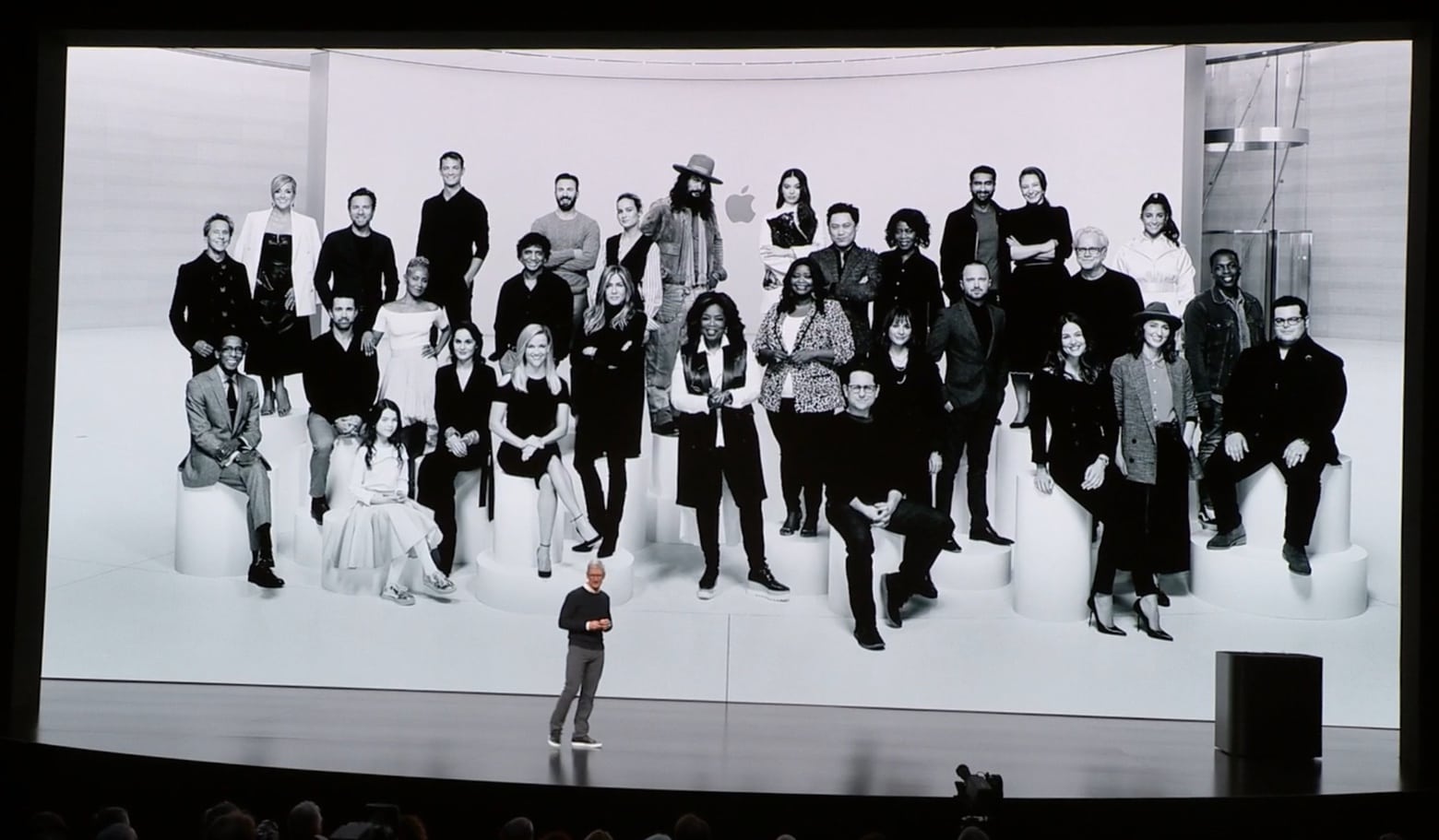On the surface, Cupertino’s decision to spend massive piles of money on its upcoming Apple TV+ streaming service seems crazy.
Is this a company with too much money being suckered? Is it a huge display of hubris (as some say of Apple Park)? Or is it, just possibly, a clever strategy that could win Apple the streaming war?
Here’s why I think that third answer is the correct one. Dig a little deeper, and Apple’s spending spree looks nothing short of brilliant.
Apple TV+: Spending for success
There’s no doubt that Apple is spending an enormous amount on its slate of original content. The company originally set aside $1 billion for making its shows, only to blow past this on the way to a current Apple TV+ budget estimated at $6 billion.
A-list stars and directors don’t come cheap, and Apple’s done nothing to reverse that trend. If anything, the gigantic Apple TV+ budget ramped up prices to an unsustainable level.
According to one recent report, Apple spent more on The Morning Show, a drama about power dynamics at a TV news show, than HBO spent on the final season of Game of Thrones. When you think that the cheaper one of these shows featured a dragon obliterating a city, that’s pretty crazy.
In some ways, Apple’s approach to content creation is pretty old-school. The most popular TV shows to come out during the new “golden age of television” (an era which began with The Sopranos and has more or less continued throughout this century) made their own stars.
Other than Sean Bean, who wasn’t exactly an A-lister, who did you know going into Game of Thrones? Fans of indie movie The Station Agent may have recognized Peter Dinklage, but that’s where most of the actors topped out in recognition. The same holds true for Breaking Bad (the show featuring Malcolm in the Middle’s dad as a meth-cooking chemistry teacher), The Walking Dead (starring Andrew Lincoln from Love Actually as a zombie-fighting sheriff) and plenty of others.

Photo: Pikachu/Mega
Bringing in the stars
TV’s current boom period may have made the small screen acceptable for some Hollywood actors, but the really big names still stick to movies. In an age of less-than-original movie franchises, there’s even a compelling argument to be made that we’re living in a post-movie star era.
Apple, on the other hand, doesn’t believe that. Cupertino recruited big names like Oprah Winfrey, Steven Spielberg and directors Damien Chazelle and M. Night Shyamalan to make series. The likes of Ron Howard, J.J. Abrams and Terry Gilliam sit in producer or executive producer roles.
Apple’s stars include Jason Momoa (Aquaman), Brie Larson (Captain Marvel), Jennifer Aniston (Friends), Reese Witherspoon (Legally Blonde) and Kristen Bell (Veronica Mars). The likes of Chris Evans (Captain America) and Steve Carell (The Office) are being brought back to TV for the first time in years. In the process, Apple helped rocket up the fees top Hollywood talent can demand.
Apple is gunning for awards and popular success, too. It wants to be the streaming company when it comes to popular entertainment. Given the lead enjoyed by Netflix, Hulu and Amazon, that may be a tall ask. But the aggressively huge Apple TV+ budget is part of the plan. Cupertino can wage a war of attrition that few companies have the long-term ability to win.
Apple TV+ budget: The world’s largest oxygen tank
In NYU Stern School of Business professor Scott Galloway’s book The Four, the author discusses Amazon’s spend-happy approach to delivery innovation. The company pioneered concepts like same-day delivery despite the fact that, in the past, it cost Amazon far more than it makes from shipping. Why spend $7 billion on ultra-speedy shipping in a single year if it results in a net loss of $5 billion? Simple: Because it makes everyone else race to follow you. And not everyone can.
To paraphrase Galloway, Apple is “going underwater with the world’s largest oxygen tank.” By spending extravagantly, Apple forces competitors to match the star power and big budgets that fuel Apple TV+. It may be an inflated bubble, like the spec script boom of the 1980s and ’90s, but Apple is asserting its dominance in a market where it should be the newbie. With everyone from Disney to DC Comics launching their own streaming services, the value of owning your own intellectual property has never been higher. By setting new expectations, Apple gets to lay down table stakes that nobody else can afford.
This isn’t to say that competitors won’t try. Netflix’s decision to hand Martin Scorsese $140 million-plus to reunite Robert De Niro and Joe Pesci on-screen (with Al Pacino thrown in for good measure) shows that other tech giants are keen to play along.
Right now, Netflix outspends Apple on content overall. But the boom market can’t last forever. The massive number of streaming services launching in 2019 will saturate the market. Sure, $10 a month for an all-you-can-eat streaming service seems pretty good. But subscribe to 10 of those and you’re suddenly paying as much as you’ve ever paid for TV.

Photo: Apple
No guarantee of success for Apple TV+
Not all of the Apple TV+ competitors will last. But Apple wants to win. And by aggressively pursuing this course from Day 1, Apple will speed up the process of weeding out the also-rans. As Apple CEO Tim Cook pointed out about Apple Music, Apple TV+ does not need to generate a load of cash from the get-go. Apple no doubt hopes it will, but Cupertino can rely on other money-printing company divisions as the streaming video service grows.
Of course, none of this necessarily guarantees Apple success. Showbiz is a tricky business where, ultimately, nobody knows anything. Plenty of star-studded movies flopped over the years. There’s a chance that promising Apple TV+ shows like See and The Morning Show will vanish without trace. In fact, it’s likely if they prove truly terrible.
But Apple is fortifying its position as best it can. The company is entering this arena as aggressively as any new market it’s ever pursued. And the competition is going to have to do its damndest to keep up.


